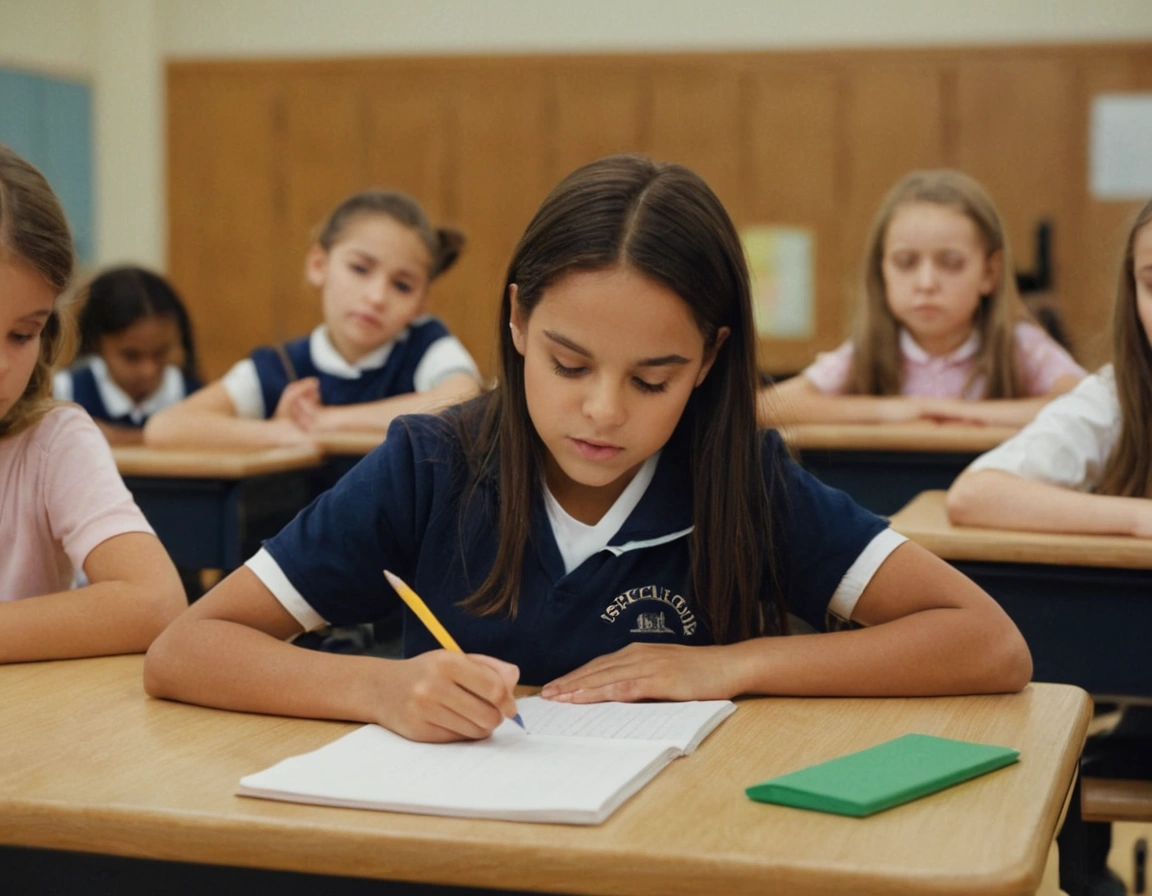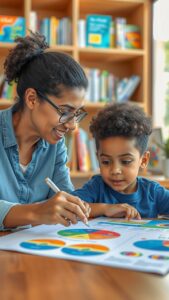Welcome! Finding the right school program for a child with special needs can be a crucial, yet challenging task. While public schools often have special education resources, many parents seek private school options for a more personalized approach. Private schools can offer specialized programs that cater to various learning differences, behavioral needs, and developmental challenges, providing a supportive and individualized learning environment.
In this article, we’ll cover the types of special education programs that private schools offer, from individualized support for students with dyslexia to therapeutic approaches for social and emotional growth. Understanding these options can help you make an informed choice for your child’s education, ensuring they receive the support and opportunities they need to thrive.
10 Types of Special Education Programs Private Schools Offer
1. Individualized Education Programs (IEPs)
While IEPs are widely recognized in public schools, private schools increasingly offer individualized education plans tailored to students with special needs. An IEP in a private setting typically includes personalized learning goals, specialized instructional strategies, and access to resources like one-on-one tutoring or assistive technology.
Teachers collaborate with parents and specialists to create a plan that adapts to each student’s unique learning style. IEPs in private schools are often more flexible than those in public schools, allowing for quicker adjustments based on the student’s progress and needs.
2. Orton-Gillingham-Based Programs for Dyslexia
The Orton-Gillingham approach is a popular program in private schools for students with dyslexia and other reading challenges. This program uses a structured, multisensory method to teach reading, spelling, and writing.
Students work on phonemic awareness and decoding skills through hands-on activities that involve visual, auditory, and kinesthetic techniques. Private schools with specialized Orton-Gillingham programs often employ trained educators who can tailor lessons to meet individual needs, helping students build confidence in their reading abilities.
Types of Special Education Programs and Their Benefits
| Program Type | Focus Area | Best for Students Who… |
|---|---|---|
| Individualized Education Programs (IEPs) | Customized learning goals | Need tailored support for various learning or developmental needs |
| Orton-Gillingham-Based Programs | Reading, phonics, decoding | Have dyslexia or other reading difficulties |
| Social Skills Training Programs | Interpersonal skills | Struggle with social interaction and communication |
| Therapeutic Programs | Emotional and behavioral support | Have emotional regulation challenges |
| Speech and Language Therapy | Language and communication | Have speech or language development issues |
| Occupational Therapy | Physical and motor skills | Need support with fine motor or sensory processing skills |
| Behavioral Intervention Programs | Behavior management | Exhibit behavioral challenges that impact learning |
| Inclusion Programs | Academic and social integration | Thrive in inclusive classrooms with peer support |
| Transition Programs | Life skills and vocational training | Need support preparing for high school or adulthood |
| STEM-Focused Programs | Math, science, technology, engineering | Show interest or strength in technical or hands-on learning areas |
3. Social Skills Training Programs
Social skills training programs are invaluable for students who need help with communication, cooperation, and interpersonal skills. Private schools often incorporate social skills training into their curriculum for students with autism spectrum disorder (ASD) or other social challenges.
These programs include role-playing, group activities, and direct instruction to teach students how to navigate social situations, read nonverbal cues, and build positive relationships with peers. Social skills programs help children gain confidence in their interactions and better understand social dynamics.
4. Therapeutic Programs for Emotional and Behavioral Support
Therapeutic programs offer a combination of academic support and counseling to address students’ emotional and behavioral needs. These programs are ideal for students who struggle with issues such as anxiety, depression, ADHD, or trauma-related stress.
Therapeutic schools or programs within private schools provide a safe space for students to express their emotions and develop coping strategies. Support might include group therapy, individual counseling, and strategies for emotional regulation, making it possible for students to succeed both academically and personally.
5. Speech and Language Therapy Programs
Many private schools offer speech and language therapy to support students who have difficulty with communication, articulation, or language comprehension. Speech therapists work with students individually or in small groups to address issues like stuttering, language delays, and auditory processing disorders.
Speech and language therapy can significantly enhance students’ communication skills, making it easier for them to engage in the classroom, express their needs, and build friendships. Private schools often integrate these therapy sessions into the school day, ensuring consistent progress.
6. Occupational Therapy for Fine Motor Skills and Sensory Processing
Occupational therapy (OT) in private schools focuses on improving students’ motor skills, coordination, and sensory processing abilities. OT programs benefit students with physical disabilities, sensory processing disorder, or developmental delays, helping them navigate both academic and everyday tasks more effectively.
OT sessions might involve activities like handwriting practice, sensory exercises, and coordination tasks. For students who find fine motor tasks challenging, occupational therapy provides strategies to overcome these obstacles, boosting independence and self-esteem.
7. Behavioral Intervention Programs
Behavioral intervention programs in private schools are tailored to students who exhibit challenging behaviors that impact their learning or social relationships. These programs use behavior modification strategies, such as positive reinforcement, to help students learn appropriate behaviors and manage impulsivity.
Private schools with behavioral intervention programs work closely with families and behavior specialists to create consistency in addressing behavioral issues. Students learn to identify triggers, develop coping strategies, and practice self-regulation, leading to a more productive and harmonious classroom experience.
8. Inclusion Programs for Academic and Social Integration
Inclusion programs are designed to integrate students with special needs into general education classrooms, providing support while allowing them to learn alongside their peers. Many private schools offer these programs to foster an inclusive environment where all students feel valued.
Inclusion programs may include classroom aides, modified assignments, and specialized instruction within the mainstream classroom. These settings allow students with special needs to build social skills, benefit from peer interactions, and access the same curriculum as their classmates.
Addressing Common Challenges in Special Education Programs
| Challenge | Solution |
|---|---|
| Meeting Diverse Needs | Offer tailored programs like IEPs, inclusion, and therapy-based approaches |
| Supporting Behavioral Needs | Implement behavior intervention programs with positive reinforcement |
| Enhancing Communication Skills | Provide speech therapy and social skills training |
| Preparing for Future Transitions | Develop transition programs for high school or adulthood |
| Maintaining Engagement | Use individualized, hands-on, and interactive learning methods |
9. Transition Programs for Life Skills and Career Preparation
Transition programs are designed for older students preparing to move on from elementary or middle school to high school or adulthood. These programs focus on life skills, career training, and independence, equipping students with practical abilities they will need after graduation.
Activities in transition programs may include budgeting, time management, social skills, job readiness, and functional academics. Private schools with transition programs help students gain the skills and confidence needed to thrive in real-world settings, whether in further education or the workforce.
10. STEM-Focused Special Education Programs
STEM-focused programs in private schools cater to students who have strengths in science, technology, engineering, and mathematics. These programs allow students with learning disabilities to explore their interests in technical fields through hands-on projects, specialized tutoring, and adaptive technology.
By integrating STEM with special education, private schools provide an opportunity for students to develop skills in areas that are often underrepresented in traditional special education programs. STEM programs boost problem-solving skills, creativity, and collaboration, helping students prepare for future academic and career paths.
Conclusion
Choosing a private school with strong special education programs can be transformative for students who need additional support. From individualized education plans and therapy services to STEM and transition programs, private schools offer a range of specialized resources that help students thrive academically, socially, and emotionally.
These programs enable private schools to meet diverse needs and foster an inclusive, supportive environment where every student feels valued. By understanding the options available, parents and educators can make informed decisions that will set students on a path to success and independence.




